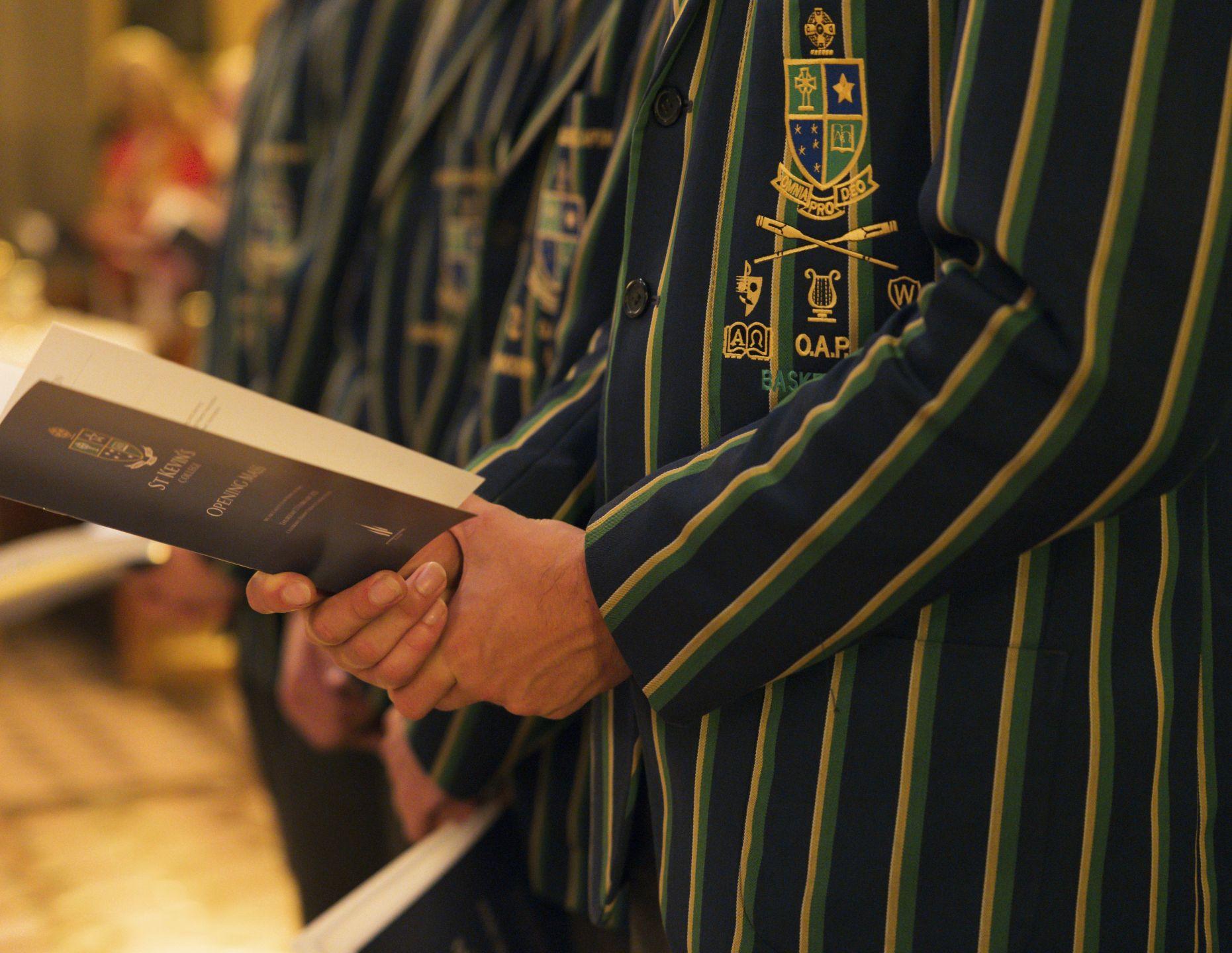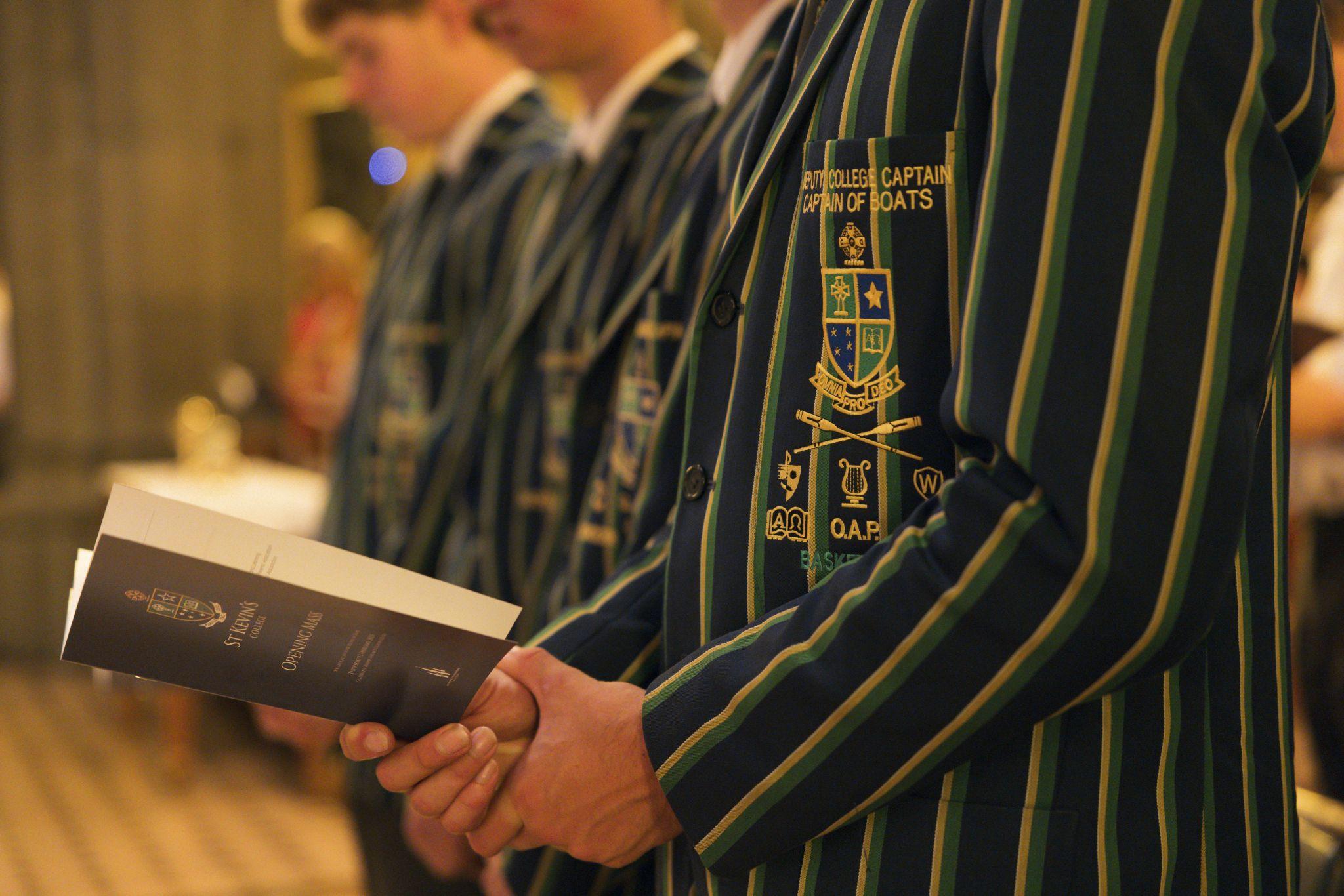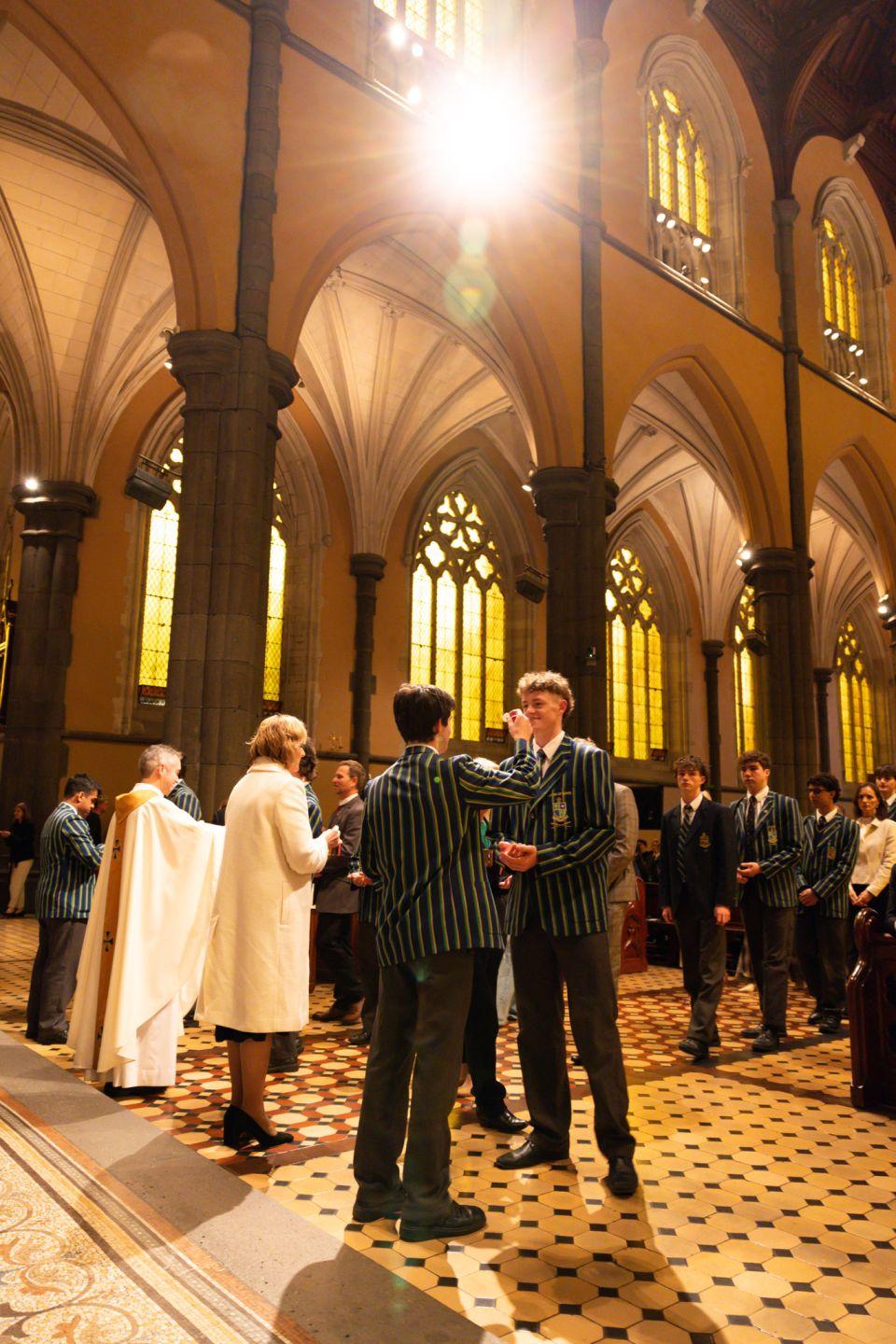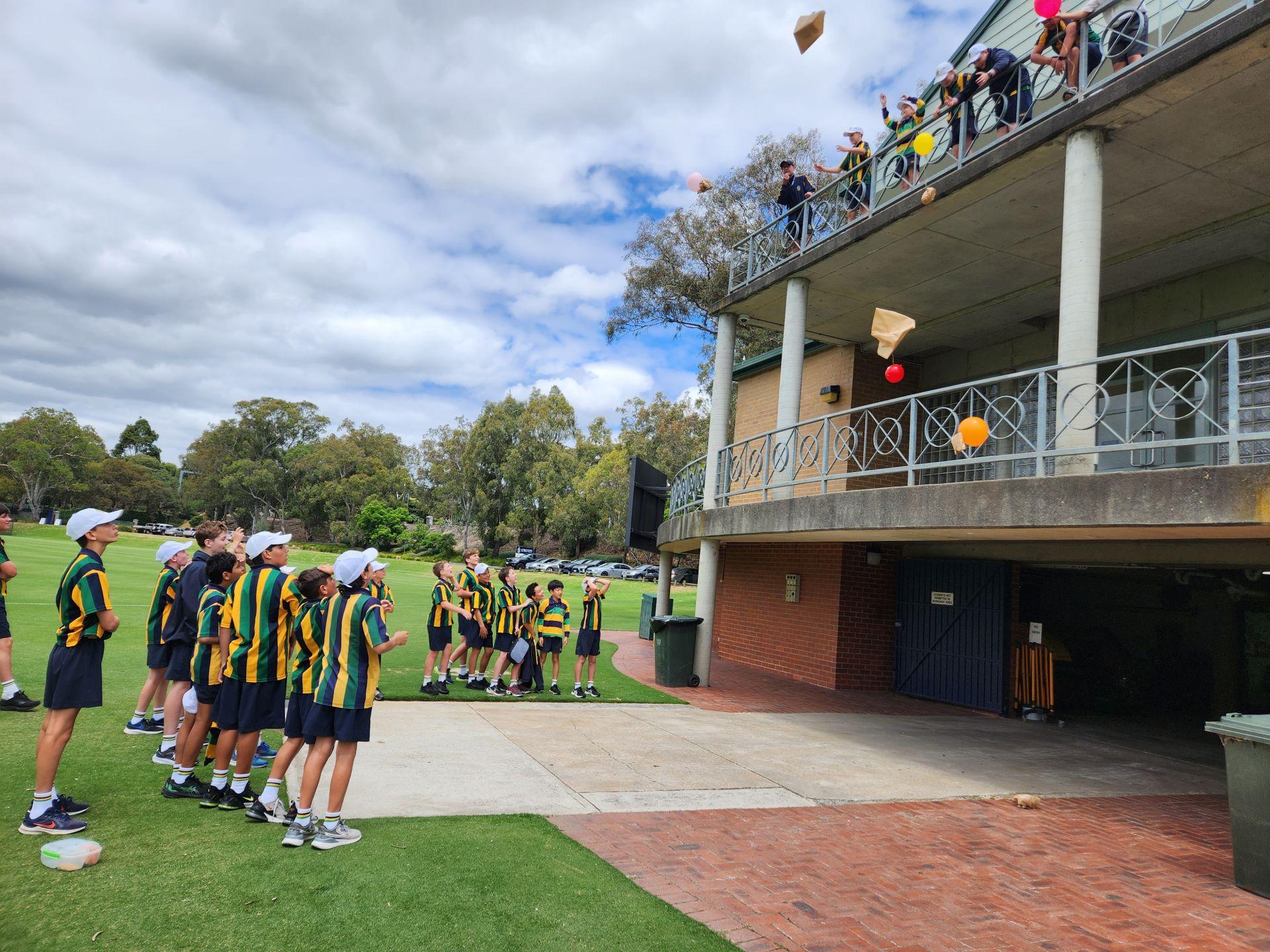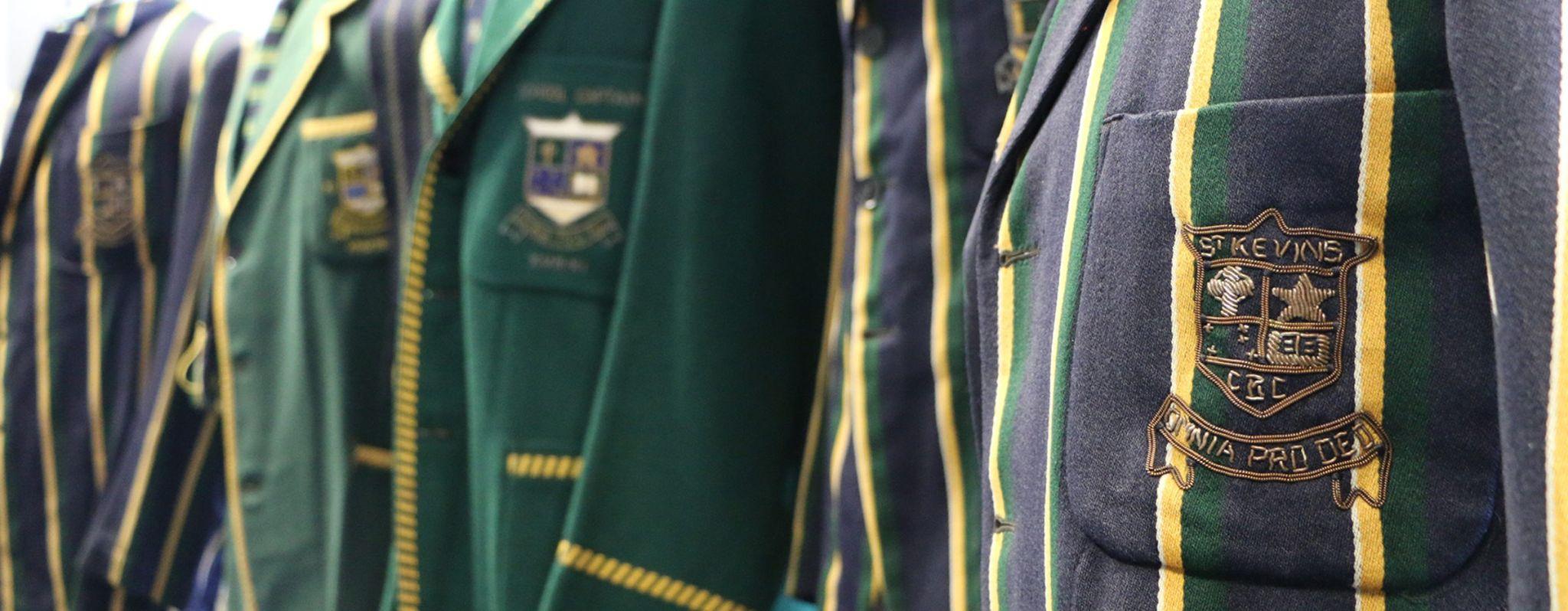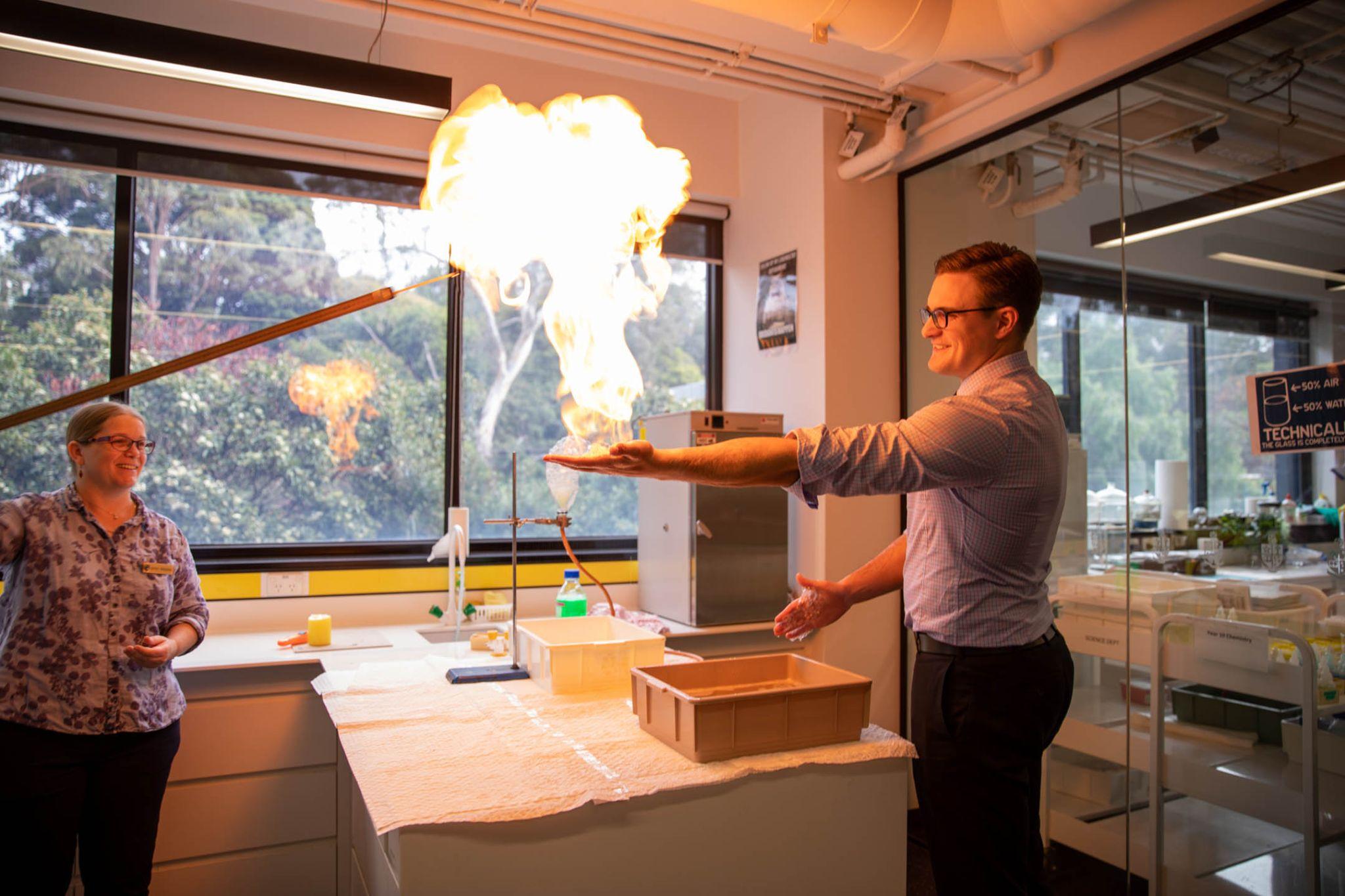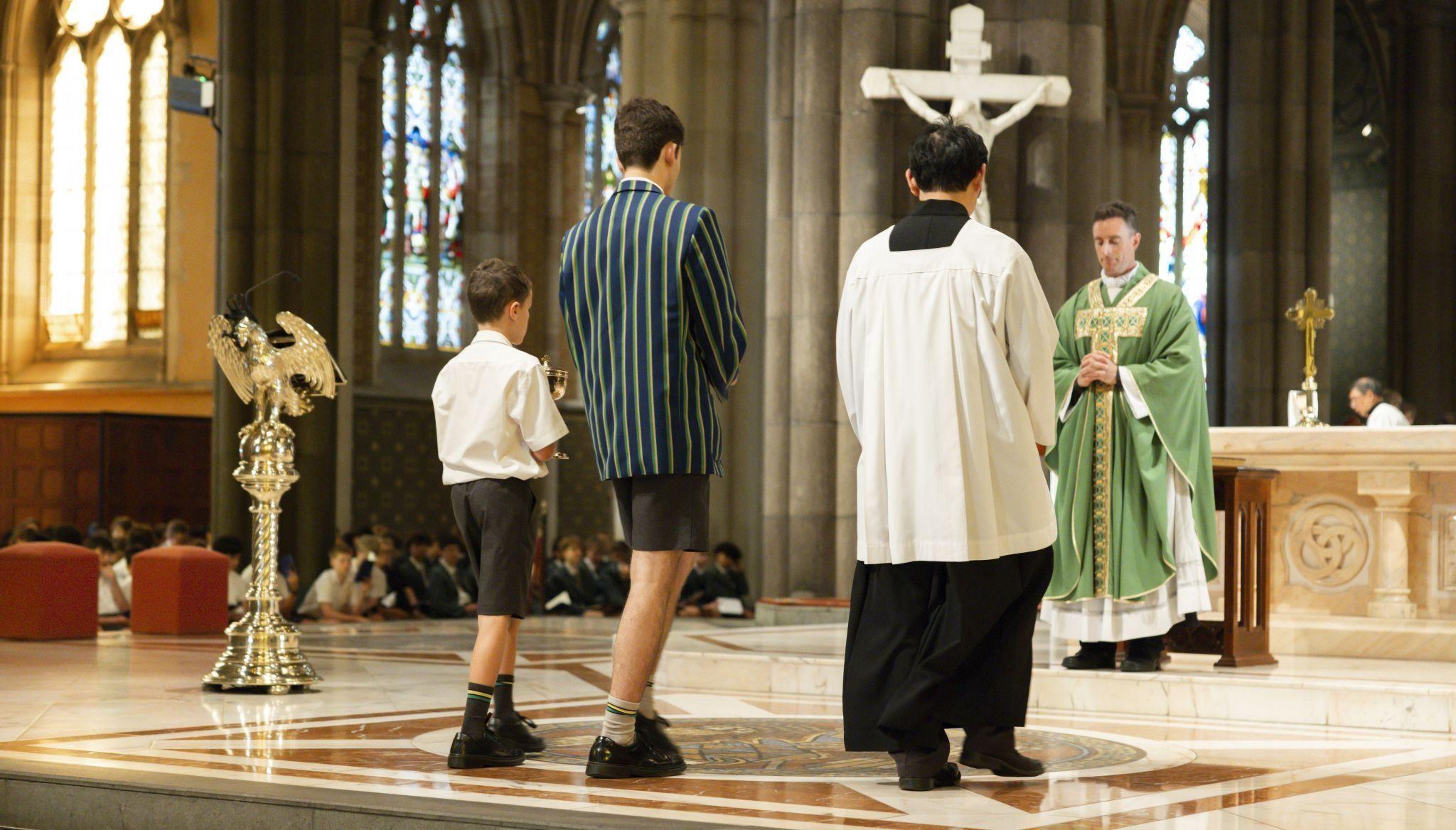
Who was St Kevin?
The original St Kevin is a somewhat mysterious figure. Bearing in mind that he lived in the sixth century, you might excuse us for not knowing precisely where the facts about him end and the myths begin. It is said that Kevin was born in 498 and died in 618, giving him a respectable life span of 120 years.
St Kevin lived as a hermit in a cave in a place called Glendalough, after which our junior school is named. A hermit might seem like an unusual patron for a busy boys’ school, but there was something about Kevin’s personality that attracted people and created community. Before long, his cave became the hub of a monastery. A place of contemplation and learning. A community of people seeking personal growth and supporting one another’s spiritual and intellectual development.
Many of the stories about St Kevin suggest that he had a deep relationship with the natural world. A celebrated tale is of St Kevin and the blackbird. One day, Kevin was praying with his arms outstretched in his cell in the monastery. The cell was so small that his right arm had to poke out through the window. There was no such luxury as glass in those days. As he was praying, a blackbird came and nestled in his hand. Then the blackbird started to build a nest. When the nest was complete, the blackbird laid an egg. Such was his respect for nature, that once Kevin realised that the nest and egg were in his hand, he decided not to move until the egg had hatched and the fledgling had flown away. He didn’t want to risk breaking the egg. You could say that St Kevin was one of the first environmentalists, living respectfully with God’s creation.
St Kevin is a good patron for a school. Any Christian community needs to stand with its arms wide open, accepting with reverence whatever God brings its way, holding firm to protect its vulnerable members.
St Kevin’s holds the lives of young men until they are ready to make their way in the world.
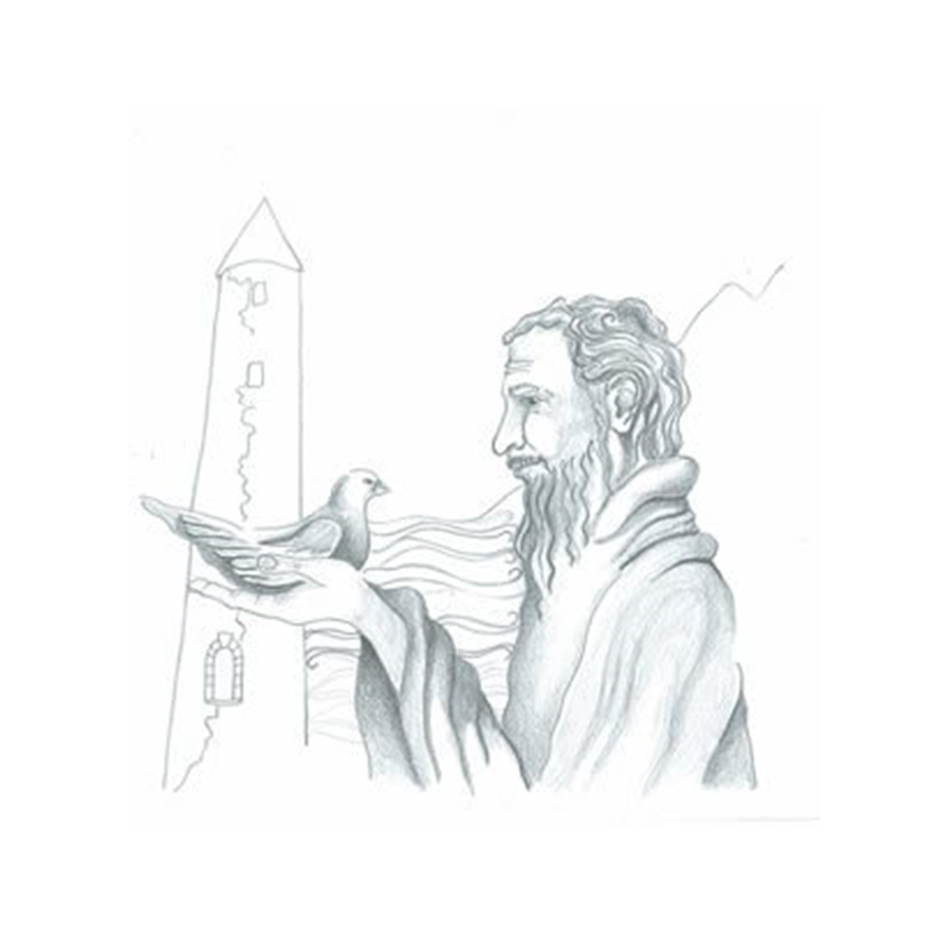
One of the great things about legends is that simple stories are never that simple. This one works on several levels. A good deal of Celtic spirituality is about finding love in hard places; it is about both blood and stone. So here we have St Kevin, in his austere cell, undertaking something which is both painful and difficult. But the real focus of the story is a small chick, a fragile creature for which the saint feels great tenderness. The story is not really about endurance; it is about nurture and the pain that may involve.
St Kevin is a good patron for a school. Any Christian community needs to stand with its arms wide open, accepting with reverence whatever God brings its way, holding firm to protect its vulnerable members.
St Kevin’s holds the lives of young men until they are ready to make their way in the world.
Michael McGirr
Justice
St Kevin’s dedicates significant resources to helping our boys put their faith into practice. We believe that Christianity calls us to a life of service. Each of our Houses has a major House Social Justice Partnership. Cusack helps with leading pre-school exercise activities at Trinity Primary School Richmond; Kearney with the Salvation Army in Richmond, providing meals and recreational activities for disadvantaged children; Kenny at St Mary’s House of Welcome; McCarthy at St Peter and Paul’s, South Melbourne; Purton with youth in public housing in Richmond; and Rahill helps with Tutoring in Fitzroy. We owe thanks to our partners in all these projects who create opportunities for our boys to serve. In addition, we challenge boys to reach beyond themselves in a wide range of projects, including Project Compassion and World Vision’s 40 hour famine.
Almost every Wednesday afternoon during the school year, our Year 10 boys scatter to the four winds. They spend time assisting in retirement facilities, special schools and a host of places where the boys can help. The time and energy we give to this program says to the boys that community service is not the icing on the cake. For a school in the Edmund Rice tradition, it actually is the cake. We hope the boys will start to imagine a way of life in which reaching out to others is one of the things you do as part of every week. We also hope our boys will be more than just doers: we’d like them to reflect deeply on life’s experiences. Our community service program engages them in week by week reflections which ask them to take care in telling their story, to do so with reverence both for themselves and the people they encounter. Here are just a few snippets from these reflections:
- I have learned that we should assist others with our whole heart and not just a small portion of it.
- One of my strengths that really comes to the surface in community service is my ability to learn both from my mistakes and from my experiences.
- The warmth and love with which some of the older residents speak of their children is very comforting and gives a much more real understanding of how much my parents love me.
- It has helped me appreciate the vocation of being a parent; bringing a human being into the world is a big thing.
- One person who comes across as compassionate is the housekeeper/chef. She is always cheerful and always making jokes and bringing laughter to an unfortunately often dull environment.
- I have now seen how people who have once been young and had a lot more possessions and power grow old and feel like they have lost everything.
- I’d have to say that all the workers at community service strike me as compassionate. After returning to my placement week after week and seeing and understanding just how hard it is to help the clients, the mere fact that the staff at school work there everyday just surprises me.
- It became very frustrating hearing the same thing over and over, always having to wear a smile.
- Parents must share a special love and bond with their children and at community service, after working with young children, I have realised how much young children look up to and imitate parental figures. I have realised that being a father is a vocation that requires much love, forgiveness, compassion, care and an open heart and a life-long commitment.
- I believe that one of my special strengths is listening to others. This works well with the elderly because they like to talk about their life story with people listening to what they have to say.
- Community service has shown me there is a whole lifetime to experience stories and events.


